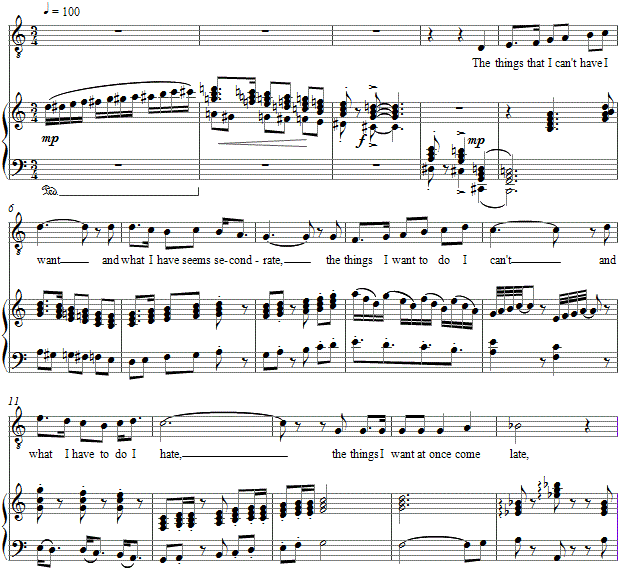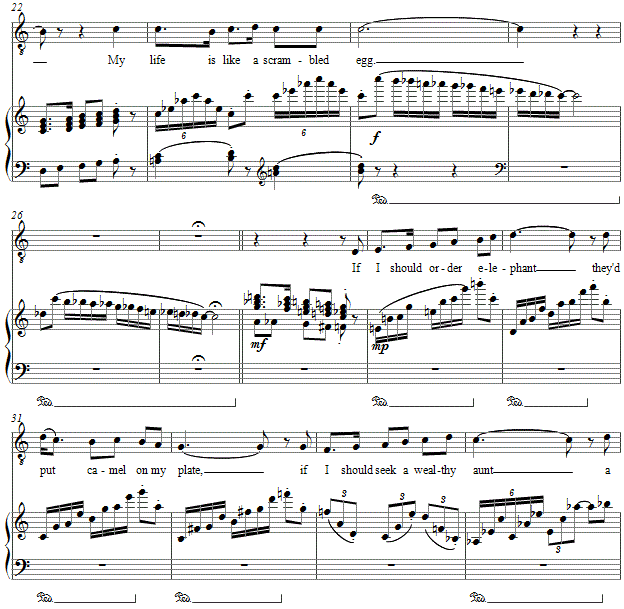Music and Texts of GARY BACHLUND
Vocal Music | Piano | Organ | Chamber Music | Orchestral | Articles and Commentary | Poems and Stories | Miscellany | FAQs
Frustration - (2011)
Don Marquis
for tenor and piano
The things that I can't have I want
And what I have seems second-rate,
The things I want to do I can't
And what I have to do I hate,
The things I want at once come late,
I am not feeling gay nor gleg,
I'm really in an awful state,
My life is like a scrambled egg.
If I should order elephant
They'd put camel on my plate,
If I should seek a wealthy aunt
A poor old uncle'd be my fate,
If I should say, "You amputate
My foot, and bring me a wooden peg,"
They'd probably cut off my pate;
My life is like a scrambled egg.
The things I want most of are scant
The girls I really love won't mate,
The times when rage would make me rant
My larynx won't articulate;
Should I arrange some morn at eight
To beat my brains out with my leg
I'd probably forget the date;
My life is like a scrambled egg.
The simplest matters won't come straight,
For once I wood a maid named Meg
And very nearly married Kate;
My life is like a scrambled egg.[ 5 pages, circa 2' 45" ]
Don Marquis
The verse is found in Noah an' Jonah an' Cap'n John Smith (1916). The term, "gleg," is an unusual rhyme, defined as 'marked by quickness of perception or movement, from 14th century Norse
through to Middle English.' Within the perspectives of a cup half full or half empty, one may safely say that Marquis' character feels all of life most definitely "half empty," and therein lies the joke in life, as in verse and through this setting in song as well. Misery, it is said, loves company. And probably a good laugh as well.
A smear of chromaticism opens the setting, followed by what one of my my old professors, Dr. Karl Eschmann (Changing Forms in Modern Music, 1954), first described to me as "wrong note music." Shall one say the opening fulfills the "twelve tone" definition in a most comical way? The setting is decidedly in a diatonic C major from the perspective of the vocal line with a number of harmonic and rhythmic dalliances to spice things up as the humor of the text itself demanded a tongue-in-cheek approach. The verses as treated as song strophes, with the accompaniment varying with each, one being partially a jazz waltz gesture and following duple fitted into each single measure.
The verses end with the same refrain, and for this a smear of chromaticism sustained by the pedal lingers a moment. Repeated smears and a short modulation into E major before ending in the tonic complete the coloration of the setting.
The score for Frustration is available as a free PDF download, though any major commercial performance or recording of the work is prohibited without prior arrangement with the composer. Click on the graphic below for this piano-vocal score.


